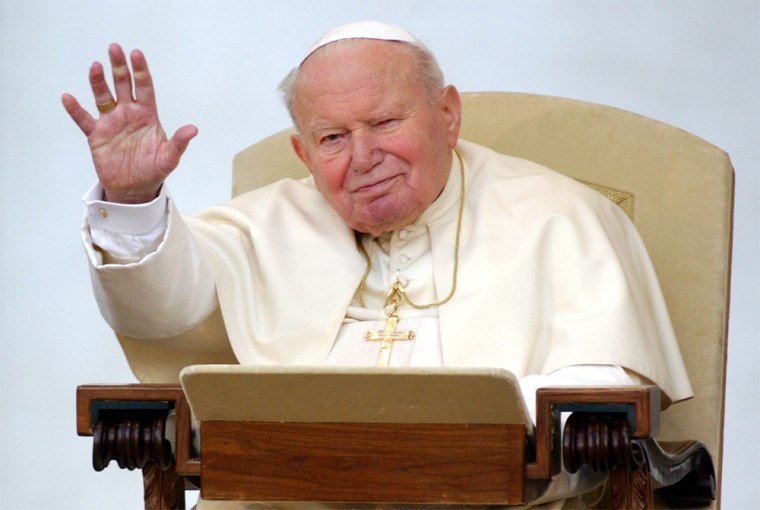If it ain’t broke don’t fix it. When it comes to the current laws regarding the withdrawal of feeding tubes in the terminally ill and permanently comatose, this sound bit of practical advice needs to be heeded.
But recently the Pope proclaimed that feeding tubes should never be withdrawn from any patient and that health-care providers are morally obligated to provide nutrition and hydration regardless of a patient's wishes. The Pope's order spells trouble for your health care -- not only because it threatens to undermine a powerful social consensus in the United States about your right to refuse medical treatment, but also because it means you can no longer be sure whether a hospital will respect your request or that of your loved ones making a decision for you.
In comments March 20 before the World Federation of Catholic Medical Associations, the Pope stated that patients who are permanently comatose are “always human” and “never become ‘vegetables’ or ‘animals.'" He went on to say that nutrition and hydration should be provided indefinitely even if there is no hope of a patient's recovery.

The Pope’s position is directly at odds with current clinical practice in U.S. hospitals. In the 1990 case of Missouri's Nancy Cruzan, the U.S. Supreme Court answered the question of whether food and water are medical treatments that can be declined. Cruzan was in a car crash that left her in a persistent vegetative state -- her brain did not get oxygen for many minutes and was so damaged that doctors said she could not possibly ever think or feel again. But, at the insistence of U.S. Attorney General John Ashcroft, who was then Missouri's state attorney general, Cruzan was kept alive by a feeding tube despite the wishes of her family.
Cruzan's parents fought for the better part of a decade to have her feeding tube withdrawn. Finally, in a landmark decision, the Supreme Court ruled that receiving food and water through tubes administered by nurses and doctors constitutes medical treatment and that if there is clear and convincing evidence about what a patient would have wanted, then the feeding tubes can be withdrawn.
It was the Cruzan case that ensured that if Americans take the time to fill out a living will or designate a decision maker, they can still exercise their right to stop all forms of medical care even if they are unable to communicate.
Not a form of euthanasia
Ever since then, America has maintained an ethical consensus on the issue. Medical organizations, critical care specialists, hospice workers, numerous state and appellate courts, and legal experts have all affirmed the soundness of the Cruzan decision. If you do not want blood, a ventilator, kidney dialysis, insulin, food and water, or any medical care at all, you can refuse it. And even a person in a permanent coma or vegetative state can exercise the same rights either through a living will or their closest family member.
Not only does the Pope’s order undermine these rights, but his claims that withdrawing feeding tubes is cruel and a form of euthanasia are mistaken. Patients refuse life-sustaining treatment all the time in American hospitals. Jehovah’s Witnesses say no to life-saving blood transfusions and their subsequent deaths are not treated as suicides. Dying patients request that ventilators and dialysis machines be turned off and no one considers doctors' decisions to honor these requests cruel or a form of euthanasia. So why make a special case about receiving chemicals through feeding tubes?
The Pope’s aim in reminding us that all people, even those in permanent comas or vegetative states, are human beings deserving of compassion and care is important. But he is wrong about what confers dignity on the sick and the dying. It is not about artificially feeding them against their will, but about finding ways to let their will be respected.
The right to control your medical care is one of the most fundamental rights you have. Respect for your liberty means that even if you are unable to assert your autonomy, others should be able to do so for you or you should be able to write your wishes down so that others must respect them.
No one should be forced to endure medical treatment that they do not want. Nothing could be more cruel or disrespectful of human dignity.
Arthur Caplan is director of the Center for Bioethics at the University of Pennsylvania.
